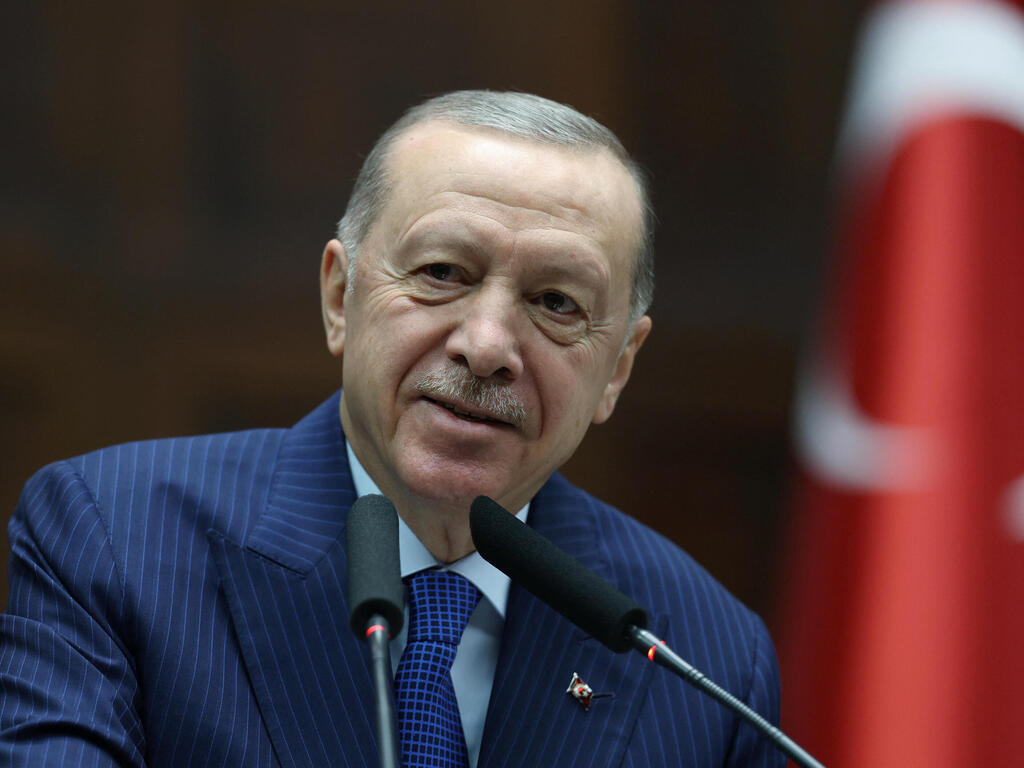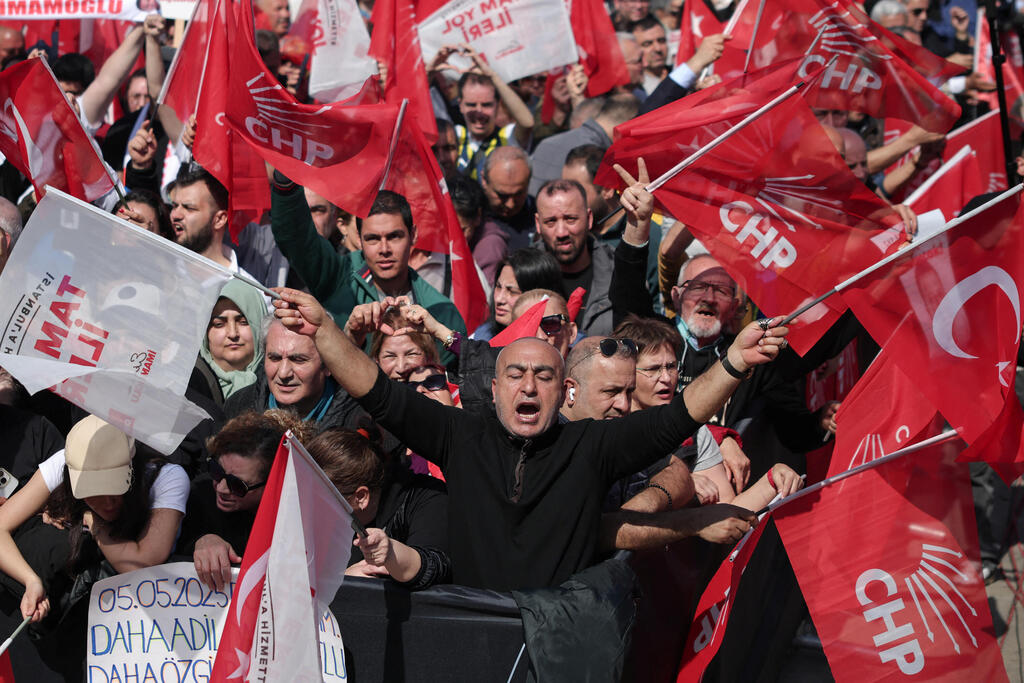Getting your Trinity Audio player ready...
At some point—not in the near future—U.S. President Donald Trump is likely to intervene in the strained relationship between Turkey and Israel, and help steer it, more or less, back on track. Trump has shown a particular fondness for strongman leaders like Turkish President Recep Tayyip Erdogan, with whom he forged a complex relationship marked by both distrust and pragmatic respect, largely due to Turkey’s strategic value.
If no major surprises occur in the coming months—and it is worth noting that the 71-year-old Erdogan is not known for being in good health—Trump may wade into the mire of Israeli-Turkish relations, a diplomatic swamp marked by dramatic highs and just as many lows.
In the past 24 hours, I spoke with five key individuals—two in Istanbul, often dubbed Turkey’s Tel Aviv, and three in the capital, Ankara. Each of them had visited Israel at least once. What stood out most was how easily Erdogan’s antisemitic outburst—"May Allah bring ruin and destruction upon Zionist Israel"—was dismissed. My interlocutors in Turkey were quick to claim this wasn’t the first time Erdogan had made such comments. What truly preoccupied them was the recent arrest of Istanbul’s mayor, Ekrem Imamoglu, just four days before he was set to declare his presidential candidacy. Although the elections are still three years away, Erdogan and his rivals are already gearing up.
There’s no way to whitewash Erdogan’s antisemitic remarks. He defends them by pointing to the suffering of Gaza’s residents at the hands of what he describes as “Israeli aggression.” A regular host of Hamas leaders, Erdogan has completely ignored the atrocities of October 7. Hamas officials are received with open arms in Ankara. No one dares challenge Erdogan—Turkey’s military is loyal to the presidential palace, commerce is under his control, and the press is tightly managed. Anyone who attempts to oppose him risks prison. More than 1,500 people, mostly young, were arrested in Istanbul’s Maltepe district, on the Asian side of the city. As the protests spread to other cities, the Israeli issue faded into the background.
Erdogan is a veteran politician who began his career as mayor of Istanbul—a stepping stone to the presidency. Over the course of his 30-year public career, he has served as prime minister and then moved into the presidential palace. Now he is reportedly maneuvering to shorten his current term to allow for a third round in the palace. As part of this strategy, he has reopened peace talks with the Kurds in northern Turkey and is sparring with Syria’s new president, Ahmad al-Sharaa, who also appears to be courting the Kurds.
Get the Ynetnews app on your smartphone: Google Play: https://bit.ly/4eJ37pE | Apple App Store: https://bit.ly/3ZL7iNv
For now, no one can openly oppose Erdogan’s authority. No one in Turkey will speak positively about Israel. Forget the 15,000 Jews in Turkey, living in fear and isolation. Forget, too, the thousands of Turks who had built strong ties with Israel. With Erdogan tightening his grip on all branches of government and the lira plunging in recent days, it would be unwise to provoke him.
 Smadar PerryPhoto: Yariv Katz
Smadar PerryPhoto: Yariv KatzAs long as Erdogan—ever stern-faced and politically shrewd—remains in his self-fashioned thousand-room palace in Ankara, it is likely that Israel will maintain a long period of diplomatic coldness toward Turkey. It is also likely, however, that Erdogan, after feeling painful diplomatic pinches from the United States, will once again seek rapprochement with Israel. When or under what circumstances that might happen remains unclear. In Israel, officials are furious, and the relationship is frozen—but the story is far from over.



